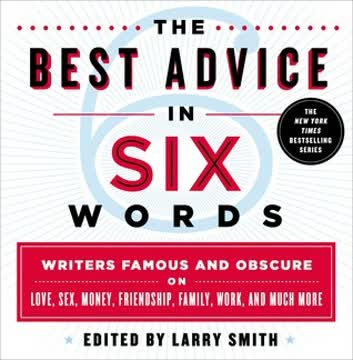Key Takeaways
1. Embrace Authenticity and Self-Acceptance
Change the world by being yourself.
Be true to you. Much advice centers on the importance of knowing and accepting who you are, flaws and all. Don't try to be someone you're not, whether to impress others, fit in, or chase external validation. Your unique qualities are your strength.
Confidence from within. Confidence isn't about external appearance or others' opinions; it comes from self-acceptance. Walk tall, embrace your oddities, and remember that nobody is truly looking at you or has it all figured out either.
- Peddle your oddities as precious commodities.
- Just believe in yourself, you idiot.
- You only have to convince yourself.
- Being underestimated is a marvelous weapon.
- Everyone’s just as clueless as YOU.
Your path is yours. Don't let others define you or direct your story. Trust your gut, follow your passions, and don't be afraid to forge your own path, even if it means torching old bridges or going against the grain.
2. Prioritize Relationships and Connection
Look into each other’s eyes daily.
Connection is vital. Advice frequently highlights the importance of human connection, from family bonds to friendships and romantic partnerships. Nurture these relationships actively, whether through simple gestures, shared experiences, or just showing up.
- When you find your tribe, stay.
- Old friends will keep you young.
- Home for family dinner whenever possible.
- Friends are always. Family is forever.
Love requires effort. Relationships, especially marriage, require conscious effort and communication. Simple acts like kissing goodnight, dating your spouse, or even having separate bathrooms can make a difference. Remember that love is a verb, requiring action and presence.
- Remember why you fell in love.
- Don’t take your spouse for granted.
- Marry happily, live extravagantly, divorce frugally.
Be present with others. Disconnect from distractions like phones and truly engage with the people around you. It's hard to hate up close, and genuine connection happens offline. Share your story, listen to others, and build bridges.
3. Cultivate Resilience and Persistence
Fall down five, get up six.
Keep moving forward. Life will inevitably present challenges, setbacks, and failures. The key is not to avoid falling, but to learn how to get back up, keep going, and find strength in the struggle. Persistence trumps giving up.
- Stumbling looks like a dance eventually.
- You can always take another step.
- Poor starts don’t guarantee poor finishes.
- The struggle continues, don’t stop now.
Learn from mistakes. Failure isn't an endpoint; it's an opportunity to learn and grow. Embrace mistakes as experiences, especially when shared. Don't be afraid to start over or try again, even if it feels daunting.
- A mistake becomes experience when shared.
- You learn more from your failures.
- Make bad work. Make it better.
Face challenges head-on. Don't run from difficulties; run towards something positive. Face your demons, harness them, and remember that big challenges can make time fly. Grit your teeth, do the work, and push on.
4. Master Communication and Listening
Does it need to be said?
Choose words wisely. Think before you speak, especially in anger or when tempted to gossip. Words have power, both to heal and to harm. Sometimes, silence is golden, and listening is more valuable than speaking.
- Speak kindly, someone always hears you.
- Listen listen listen listen … then talk.
- Words are silver, silence is gold.
- Delete almost all adjectives and adverbs.
Listen actively. Pay attention not just to words, but to what's unsaid. Ask questions, listen intently, and try to understand others' perspectives. People are experts on themselves; give them the space to share.
- Ask the second question and listen.
- When you tell a story, listen.
- You’re not learning when you’re speaking.
Honesty and kindness. While honesty is crucial, kindness should temper it. Better to be kind than right sometimes. A heartfelt apology resolves most conflicts, and simple words like "Thanks" and "Sorry" are incredibly powerful.
- Honesty damages but lies can destroy.
- Better to be kind than right.
- Most powerful words: “Thanks” and “Sorry.”
5. Find Joy in Simplicity and Presence
Just have some ice cream already.
Embrace simple pleasures. Happiness isn't always found in grand achievements or material possessions. Often, it resides in the small, ordinary moments and simple pleasures of daily life. Take time to enjoy them.
- Find your joy in ordinary things.
- Order pie before they run out.
- Cheese and crackers IS a meal.
- Play vinyl. Dance in the dark.
Be present now. Don't get lost in overthinking, worrying about the future, or dwelling on the past. Live in the now, appreciate your beauty today, and take time to not think. The present moment is where life happens.
- Fear not, Live in the now.
- Overthinking seems to result in underliving.
- Take some time to not think.
Simplify and declutter. Reduce complexity in your life, whether it's material possessions, unnecessary worries, or digital distractions. Simplify your life, amplify your pleasure, and disconnect from things you can't control.
- Simplify your life. Amplify your pleasure.
- Don’t let your things control you.
- Turn off your electronics and focus.
6. Navigate Work and Creativity Wisely
Dreams don’t work unless you do.
Work ethic matters. Success in work and creative pursuits requires dedication and consistent effort. Show up, do the work, and remember that overnight success rarely happens overnight. Work ethic, not just talent or GPA, determines success.
- Be a doer, not a dreamer.
- Work every angle, don’t cut corners.
- Persistence has more value than qualifications.
Create consistently. For writers and artists, the advice is clear: create regularly. Put pen to paper, make something every day, and write until you can't, then write more. Don't let perfection be the enemy of done.
- Just make something every single day.
- Write daily. Submit often. Get published.
- The opposite of perfection is DONE.
Professional wisdom. Practical advice for the workplace includes being indispensable, learning from bad bosses, and managing expectations. Remember that the job doesn't love you back, so maintain perspective and boundaries.
- Become indispensable in the first year.
- Best lessons come from worst boss.
- The job doesn’t love you back.
7. Manage Finances and Materialism
People first, then money, then things.
Financial prudence. Sound financial advice emphasizes saving, spending wisely, and avoiding unnecessary debt or risk. Be mindful of where your money goes and prioritize needs over wants.
- Save more, spend less, avoid ripoffs.
- Buy low. Sell high. (Both infrequently.)
- Dear younger self: start saving money.
Value experiences over things. True wealth lies in relationships and experiences, not material possessions. Collect people, not things, and remember that money is neither success nor happiness.
- Appreciating creates more joy than acquiring.
- Money is neither success nor happiness.
- “Collect people, not things.” Love, Mom.
Work for freedom. While money is necessary, don't let it be the sole driver. Slightly underpaid is better than vastly overworked if it means more freedom. Crime might pay, but freedom is better.
- Freedom is the prize. Not money.
- Slightly underpaid better than vastly overworked.
- Crime pays but freedom is better.
8. Handle Difficult Emotions and Situations
Anger simply takes too much energy.
Process emotions constructively. Don't let negative emotions consume you. Find healthy ways to process anger, anxiety, and sadness, whether through talking, writing, exercise, or simply taking a moment to breathe.
- Anxiety brews in a lidless pot.
- Writing helps to ease the mind.
- Worries vanish temporarily during a workout.
- Go outside the building to scream.
Practice forgiveness. Holding grudges is a heavy burden. Let them go for your own peace of mind. If you want forgiveness, you must forgive others.
- Lighten your load: let grudges go.
- You want forgiveness? You must forgive.
- Don’t hold grudges. Life’s too long.
Seek help when needed. You don't have to face everything alone. Ask for help when you need it, whether from friends, family, or professionals. Mental health days are a necessity, not a luxury.
- Ask for help, it’s out there.
- Mental health days are a necessity.
- Grieve, accept, fight, and push on.
9. Learn, Grow, and Stay Curious
Every experience is another college essay.
Embrace continuous learning. Life is a constant opportunity to learn and grow. Be curious, ask questions, read widely, and seek feedback. Every experience, good or bad, offers a lesson.
- Develop an insatiable appetite for feedback.
- To get an “A,” ask questions.
- Read great books, not good ones.
- You need to read more biographies.
Stay open to change. Allow yourself to evolve and change over time. Don't be afraid to reinvent yourself or change paths. Accept change, you might need it, and remember that even tiny mutations make big changes.
- Allow your true self to change.
- There’s always time to reinvent yourself.
- Accept change. You might need it.
Question assumptions. Don't blindly accept everything you hear or read. Be skeptical, look beyond slogans, and remember that truth doesn't rely on being believed. Think critically and form your own opinions.
- Go beyond the slogans and rhetoric.
- TRUTH doesn’t rely on being believed.
- Don’t believe a word I say.
10. Practice Kindness and Empathy
Kindness is never wasted, or forgotten.
Be kind to others. Simple acts of kindness can make a significant difference. Throw a stranger an unexpected smile, help others succeed, and remember that even grouches have hearts.
- Throw a stranger an unexpected smile.
- Help others succeed. It is addictive.
- Even grouches have hearts. Be kind.
Show empathy and understanding. Try to see things from others' perspectives. Assume good intentions, listen with empathy, and remember that saying "I understand" can work wonders.
- Assume everyone is driving with kids.
- Saying “I understand” can work wonders.
- Assume good intentions.
Help those in need. Look beyond yourself and do something for someone worse off. Let childhood horrors breed compassionate hearts and remember that helpful and helpless are thin lines.
- Do something for someone worse off.
- Let childhood horrors breed compassionate hearts.
- Helpful and helpless are thin lines.
Last updated:
Review Summary
The Best Advice in Six Words receives mostly positive reviews, with an average rating of 3.90 out of 5. Readers appreciate the concise, witty advice and find the book entertaining and thought-provoking. Many consider it a perfect gift or conversation starter. Some reviewers note that not all advice resonates, and a few find the organization lacking. Critics mention that some quotes are clichéd or choppy. Overall, readers enjoy the book's brevity, humor, and ability to provoke reflection, with many finding gems of wisdom among the six-word snippets.
Similar Books
Download PDF
Download EPUB
.epub digital book format is ideal for reading ebooks on phones, tablets, and e-readers.








